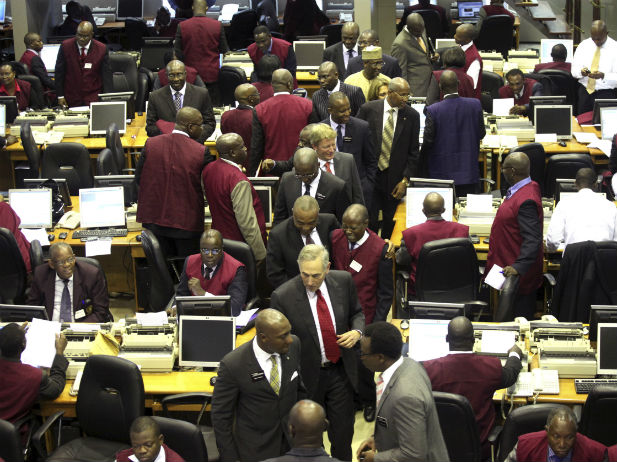- ‘Capital Market Unlikely to See Growth After Elections’
An economist at Bloomberg Africa, Mark Bohlund, has said the Nigerian capital market is unlikely to record any positive performance after the 2019 elections if key issues in the economy are not addressed.
Bohlund, who spoke on the sidelines of the NSE-Bloomberg CEO Roundtable conference in Lagos on Tuesday, noted that the diversification from oil revenue had proceeded quite slowly under the President Muhammadu Buhari administration.
He noted that changes in the oil price directly impacted on market performance, stressing that failure to diversify from oil might have serious adverse effects on the capital market and the economy as a whole.
He said, “Personally, I am not optimistic that the dependence on oil will change after the elections or even in the next four years. However, on market performance, I am ready to be surprised, especially with the introduction of technology because digital technology can increase the savings rate.
“But it is more than just saving; it is about solving the issues in agriculture, power sector and other sectors of the economy. This is not going to be easy to achieve and it is really difficult to predict when it will be achieved.”
According to Bohlund, another thing to focus on is increasing domestic investors by improving governance and institutions, and this will make investors more secure.
“If investors are successful, they will be able to continue to invest and even attract more people. Encouraging domestic investors has a lot to do with governance and the right institutions,” he added.
Speaking on the theme ‘Reshaping the Nigerian economy for growth: Leveraging the fourth industrial revolution as a catalyst for advancement’, Bohlund noted that technology could only solve a few of the problems of the capital market.
He added that the Nigerian capital market was actually performing very well in terms of sophistication and liquidity, when compared to other African countries.
Bohlund said, “Nigeria is ahead when it is compared to other sophisticated African markets. It can be ranked just after South Africa because of its ease of trading and the relatively easy financial instruments.
“However, it can actually do better than countries that have so far led the way in terms of more dissolved ground and levelled banking services, such as what we see in Kenya.”
The Chief Executive Officer, Nigerian Stock Exchange, Oscar Onyema, said the conference was conceptualised to discuss topical issues impacting on the Nigerian economy.
Onyema said ideas generated in the past editions provided the Exchange with more insights in carrying out its advocacy efforts with policymakers, adding that some of the ideas had been implemented and spurred a rebound of the economy.
He said, “Today, most of the world’s developed economies have begun to adapt to the fourth industrial revolution and at the Exchange, we have since begun the advancement of our offerings with the assistance of technology.
“In order to capitalise on the opportunities presented by the fourth industrial revolution, the Exchange is investigating the market potential of key emerging technologies in order to deploy solutions that will empower a larger proportion of the populace to access the capital market and unlock efficiencies in product and service delivery for capital market operators.”


 Forex3 weeks ago
Forex3 weeks ago


 Naira2 weeks ago
Naira2 weeks ago
 Billionaire Watch2 weeks ago
Billionaire Watch2 weeks ago




 Naira2 weeks ago
Naira2 weeks ago




 Naira2 weeks ago
Naira2 weeks ago




 Naira4 weeks ago
Naira4 weeks ago


 Naira7 days ago
Naira7 days ago
 Banking Sector4 weeks ago
Banking Sector4 weeks ago





















